第125章 BOOK II(55)
In her own room again, she was seized with a sudden fever of activity. For weeks past she had been too listless and indifferent to set her possessions in order, but now she began to examine systematically the contents of her drawers and cupboard.
She had a few handsome dresses left--survivals of her last phase of splendour, on the Sabrina and in London--but when she had been obliged to part with her maid she had given the woman a generous share of her cast-off apparel. The remaining dresses, though they had lost their freshness, still kept the long unerring lines, the sweep and amplitude of the great artist's stroke, and as she spread them out on the bed the scenes in which they had been worn rose vividly before her. An association lurked in every fold: each fall of lace and gleam of embroidery was like a letter in the record of her past. She was startled to find how the atmosphere of her old life enveloped her. But, after all, it was the life she had been made for: every dawning tendency in her had been carefully directed toward it, all her interests and activities had been taught to centre around it. She was like some rare flower grown for exhibition, a flower from which every bud had been nipped except the crowning blossom of her beauty.
Last of all, she drew forth from the bottom of her trunk a heap of white drapery which fell shapelessly across her arm. It was the Reynolds dress she had worn in the Bry TABLEAUX. It had been impossible for her to give it away, but she had never seen it since that night, and the long flexible folds, as she shook them out, gave forth an odour of violets which came to her like a breath from the flower-edged fountain where she had stood with Lawrence Selden and disowned her fate. She put back the dresses one by one, laying away with each some gleam of light, some note of laughter, some stray waft from the rosy shores of pleasure. She was still in a state of highly-wrought impressionability, and every hint of the past sent a lingering tremor along her nerves.
She had just closed her trunk on the white folds of the Reynolds dress when she heard a tap at her door, and the red fist of the Irish maid-servant thrust in a belated letter. Carrying it to the light, Lily read with surprise the address stamped on the upper comer of the envelope. It was a business communication from the office of her aunt's executors, and she wondered what unexpected development had caused them to break silence before the appointed time. She opened the envelope and a cheque fluttered to the floor. As she stooped to pick it up the blood rushed to her face.
The cheque represented the full amount of Mrs. Peniston's legacy, and the letter accompanying it explained that the executors, having adjusted the business of the estate with less delay than they had expected, had decided to anticipate the date fixed for the payment of the bequests.
Lily sat down beside the desk at the foot of her bed, and spreading out the cheque, read over and over the TEN THOUSANDDOLLARS written across it in a steely business hand. Ten months earlier the amount it stood for had represented the depths of penury; but her standard of values had changed in the interval, and now visions of wealth lurked in every flourish of the pen. As she continued to gaze at it, she felt the glitter of the visions mounting to her brain, and after a while she lifted the lid of the desk and slipped the magic formula out of sight. It was easier to think without those five figures dancing before her eyes; and she had a great deal of thinking to do before she slept.
She opened her cheque-book, and plunged into such anxious calculations as had prolonged her vigil at Bellomont on the night when she had decided to marry Percy Gryce. Poverty simplifies book-keeping, and her financial situation was easier to ascertain than it had been then; but she had not yet learned the control of money, and during her transient phase of luxury at the Emporium she had slipped back into habits of extravagance which still impaired her slender balance. A careful examination of her cheque-book, and of the unpaid bills in her desk, showed that, when the latter had been settled, she would have barely enough to live on for the next three or four months; and even after that, if she were to continue her present way of living, without earning any additional money, all incidental expenses must be reduced to the vanishing point. She hid her eyes with a shudder, beholding herself at the entrance of that ever-narrowing perspective down which she had seen Miss Silverton's dowdy figure take its despondent way.